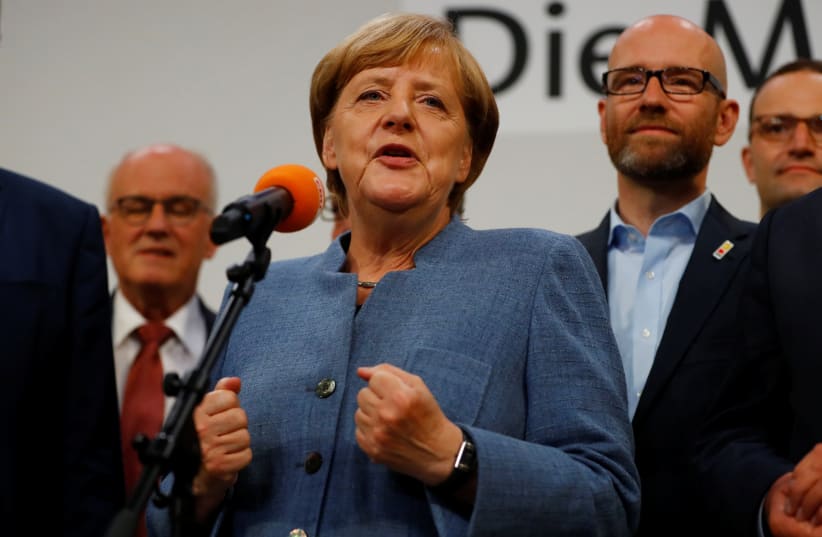BERLIN - Angela Merkel is heading into her final term as German chancellor, a close ally conceded on Monday, intensifying the jockeying over the succession to Europe's most powerful leader.
"It is clear to everyone that the chancellor is going into a last term," European Commissioner Guenther Oettinger told Deutschlandfunk radio, adding that she would "skillfully set in motion the succession in these four years".
But with dissatisfaction growing in her conservative bloc at having to cede the coveted finance minister slot to secure the Social Democrats' (SPD) backing for a renewed "grand coalition", some think the succession could come sooner than expected.
While Oettinger and the 63-year-old chancellor herself lean towards a final Merkel term that lasts into the 2020s, others are straining for a swifter handover.
Following is a list of groups and individuals who could be instrumental in precipitating the end of Merkel's 12-year-old leadership.
THE BUSINESS WING
The fabled "Mittelstand" of medium-sized exporters is the backbone not just of Germany's economy but also of Merkel's Christian Democratic Union (CDU) and its Bavarian CSU sister party. Lawmakers representing Mittelstand interests have long been among her critics.
Parliamentary Mittelstand Circle (PKM) leader Christian von Stetten, 47, was a loud opponent of Merkel's policies on bailing out Greece during the euro zone crisis and of her decision to open Germany's borders to over a million migrants in 2015.
Carsten Linnemann, head of the Mittelstand Association of the CDU/CSU (MIT), went as far as to abstain in the party leadership's vote on endorsing the new grand coalition.
But other powerful interests, including the women's, social policy and senior citizens' wings of the parties are all strong backers of Merkel.
THE YOUTH WING
Jens Spahn, the 37-year-old arch-conservative state secretary in the finance ministry, has long been seen as one of the conservatives' rising stars and has long been rumored to be eyeing the succession.
"The chancellor should have the courage to make ministers of critical people as well," his ally Paul Ziemiak, head of the conservative youth organization, told the Bild am Sonntag newspaper, urging Merkel to find senior jobs for the next generation.
Daniel Guenther, 44, the more liberal - and more popular - premier of the state of Schleswig-Holstein, fresh from a shock victory in regional elections last year, is seen as a less threatening possible successor.
OLD RIVALS
Friedrich Merz, 62, and Wolfgang Bosbach, 65, who once vied with Merkel for the party leadership, are freer than most to criticize the chancellor, but their age means none could offer the kind of generational handover many are pushing for. The same goes for Roland Koch, 59, former premier of the state of Hessen. All three are regarded as more uncompromisingly conservative than Merkel.
THE SOCIAL DEMOCRATS
Despite the SPD's dismal poll showing - an INSA poll has them on 16.5 percent, barely ahead of the far-right Alternative for Germany (AfD) - the party holds Merkel's future in its hands.If the more radical members follow their hearts and vote against party leadership to reject a new grand coalition, fresh elections, a minority government, or renewed negotiations with smaller parties on a three-way coalition could ensue. In all those scenarios, the price could be Merkel's departure.
